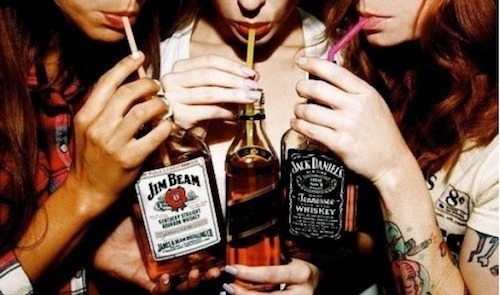We’re never going to tell anyone they shouldn’t enjoy a drink (especially around the holidays), but there are some dental dangers to over-imbibing. But are moderate drinkers at risk for serious tooth and mouth disease? There isn’t much conclusive medical evidence, but dentists say that they see the effects of moderate drinking regularly.
The main threat to your teeth and gums comes from the sugar content in alcohol (including beer) which, when broken down in your mouth, creates an acidic breeding ground for bacteria and plaque.
There is also a strong clinical link between the excessive consumption of alcohol and head and neck cancers. In fact, while it can increase the risk of getting these diseases if used together with tobacco, alcohol can pose a risk in its own right.
People most often associate the health risks of excessive alcohol drinking with damage to the liver or stomach lining. But during Alcohol Awareness Month, Delta Dental warns that alcohol abuse can also prove harmful to oral health.
It is estimated that each year in the United States there will be more than 30,000 new cases of oral cancer diagnosed and about one person every hour will die from this disease.
1. Heavy alcohol consumption is a risk factor for oral cancer.* According to the American Cancer Society, about 70 percent of oral cancer patients consume alcohol frequently.
2. Tobacco smoking (i.e., cigarette, pipe or cigar smoking), particularly when combined with heavy alcohol consumption, has been identified as the primary risk factor for approximately 75 percent of oral cancers in the U.S.
3. Using tobacco with alcohol poses a much greater risk than ingesting either substance alone. According to the National Institute on Alcohol Abuse and Alcoholism, there are approximately 17.6 million adults who are alcoholics or have alcohol problems.3
People with alcohol problems also tend to neglect other healthy habits like eating properly or taking care of daily hygiene. A small 2003 study conducted at an alcohol rehabilitation center found that residents had a higher incidence of periodontal (gum) disease and cavities.
Limiting the Damage
- Most importantly, after a night out, you should brush and floss your teeth before going to bed. If you often forget to do this, leave your tooth brush on your pillow before you go out to remind you to spend a couple of minutes brushing.
- While you’re drinking try to swish a mouthful of water around every so often to increase the saliva flow and rinse away sugars and acid in your mouth
- On your way home, chew sugar-free gum to stimulate saliva flow and clear the mouth of harmful sugars and acid.
See more at: http://www.dentalhealthweek.com.au/Adults/Lifestyle-Risks/alcohol.html#sthash.1JLAL7pw.dpuf

